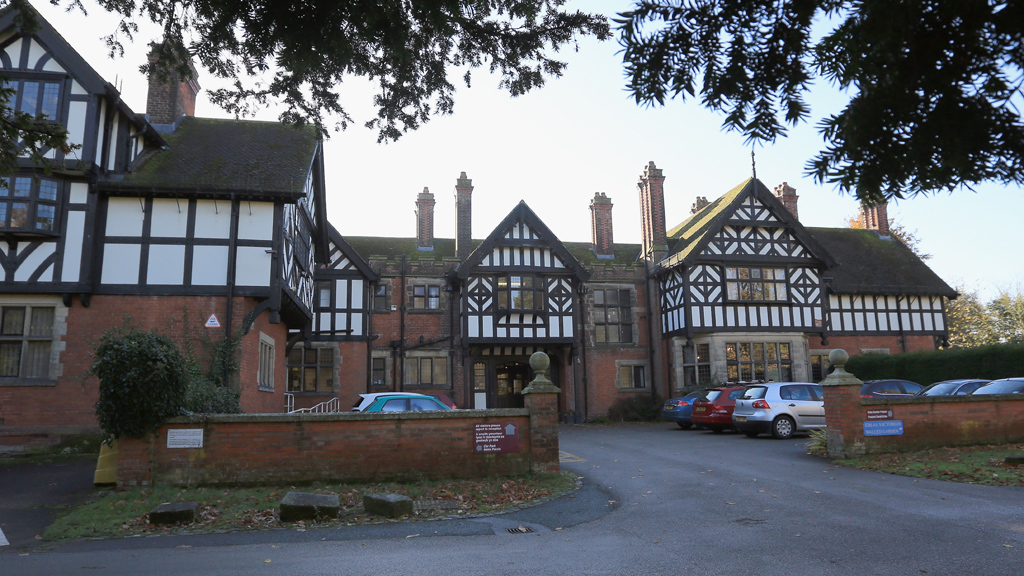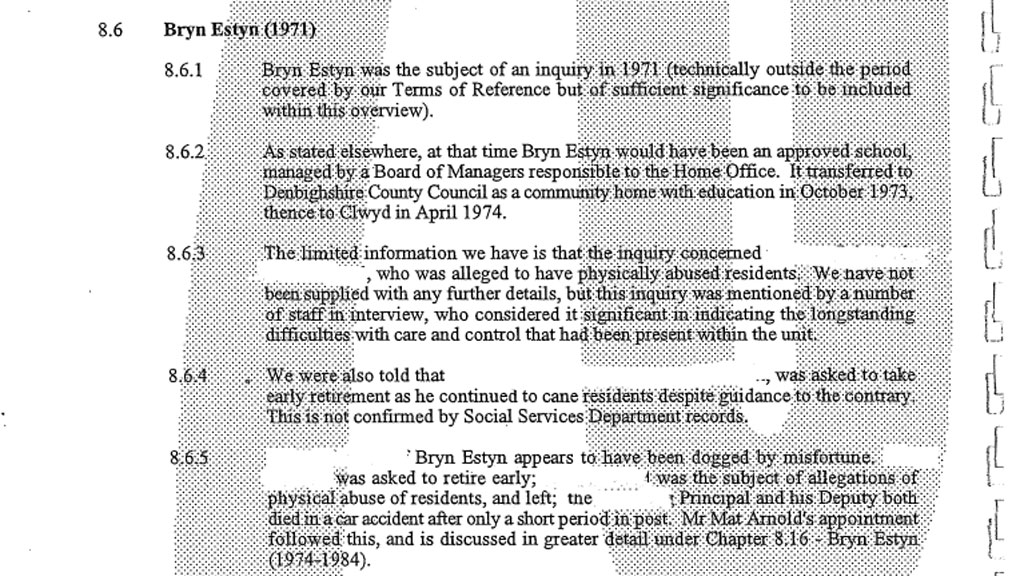Jillings report shows ‘extensive’ abuse at children’s homes
A report into failings at council-run children’s homes in north Wales, which was suppressed for almost 20 years, is finally published.

The Jillings report, compiled in 1996, concluded that the abuse was “extensive” and took place over a “substantial number of years”.
It was shelved by the former Clwyd county council because insurers feared compensation claims. It is now being released online as an edited version.
Allegations about the abuse, centring on the Bryn Estyn children’s home in Wrexham, emerged in the early 1990s, leading to the conviction of seven former care workers after an investigation by North Wales police in 1991.
Defamation fears
The report contains what it calls “frank criticism” of individuals within the local authority; however, much of that information has now been redacted by councils in north Wales councils due to defamation fears.
It says that council employees and even serving police officers from the time could have been named as potential perpetrators of assaults.
North Wales police described the inquiry as its “largest investigation into child abuse” and said it resulted in 3,755 witness statements being taken with at least 24 victims identified.

The report continues: “It is clear that, in a significant number of cases, the lives of young people who have been through the care system in Clwyd have been severely disrupted and disturbed. At least 12 young people are dead.
“Of the many statements taken, it is unclear how many were forwarded to the Crown Prosecution Service for consideration. It is also unclear how many other professionals, including police officers, were named in these statements as perpetrators of assaults.”
The report says it does know of “at least three employees” in the social services department who were interviewed as part of the probe but “to our knowledge, none of them were disciplined”.
Waterhouse tribunal
The Jillings report outlined the widespread abuse of children in care years before a tribunal revealed appalling mistreatment at homes over a period of 20 years.
The tribunal, led by Sir Ronald Waterhouse, looked into the abuse of hundreds of boys and heard evidence from more than 650 individuals who had been in some 40 homes between 1974 and 1990, publishing its report in 2000.
There were 140 compensation claims settled on behalf of the victims and 72 recommendations were made.
The conclusion of the Jillings report begins with a quote from George Bernard Shaw which reads: “It is an old saying that he who tells too much truth is sure to be hanged.”
It continues: “Our investigations have led us to conclude that the abuse of children and young people in Clywd residential units has been extensive and has taken place over a substantial number of years.”
Other inquiries have been launched since the Jillings report, including Operation Pallial, launched last November, which is looking into 140 allegations relating to 18 care homes between 1963 and 1992.
A separate review by Mrs Justice Macur is investigating the terms of the Waterhouse abuse inquiry.
The Jillings report
The report was compiled in 1996 but was shelved by the former Clwyd county council because insurers feared compensation claims.
A heavily edited version of the report has now been published online in the wake of fresh investigations into the abuse.
The full report does not name any suspected abuser who was unknown to the police.
However a number of concerns remain about releasing the report more widely.
There is the historical concern about accuracy. None of the authorities in north Wales wishes to unfairly criticise or defame anyone.
Therefore, the councils are issuing the report with some text blanked out (redacted).
The following categories of information have been redacted:
i. information identifying a living individual unless;
a) it is related to a person convicted of a criminal offence
b) it was taken from the personnel file of a person who was not convicted of a criminal offence where the information is also in the Waterhouse report
ii. advice to which legal professional privilege applies
iii. the opinions of the independent panel into the correctness or otherwise of an individual's actions (or failures to act)
iv. information provided by individuals in relation to the independent panel's questions